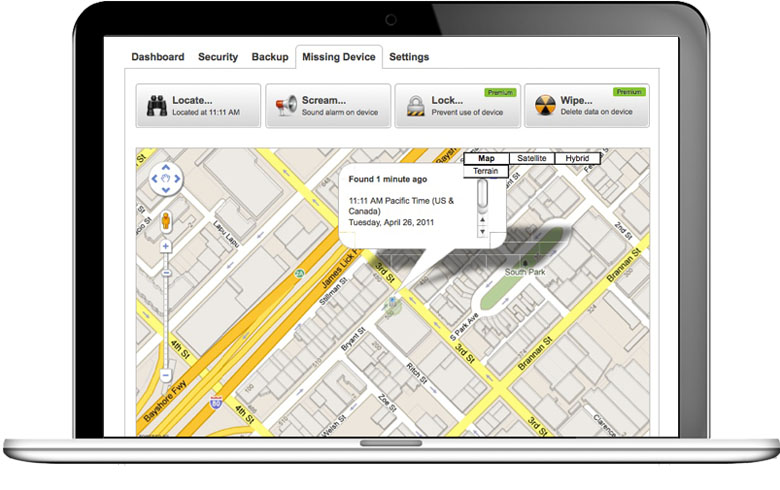Is it time to get your kid their first smartphone? Depends. How to know if she’s ready (or if you are).
This might be the year. One day your child is her contented self, and the next she lodges a grand compliant: Allll of her friends have smartphones and she’s the onnnnly one that doesn’t. She will be doomed to a socially inadequate life if she doesn’t get one, like, right now. What to do?
To smartphone or not to smartphone is a big decision, and the right timing is different in every family. Getting a phone represents a growing maturity— smartphones are powerful tools after all, and our kids shouldn’t be left to a lot of unsupervised time with them. They can broadcast embarrassing images, expose them to mature content, or reveal their location to the world. All of this while kids are still developing a sense of judgment (that even some adults have yet to master) when it comes to how to represent yourself online and how to use these (expensive!) gadgets responsibly. Here are 9 questions you can ask yourself, talk over with your partner, and discuss with your child to help you make the best decision. At the end, I’ll share what’s worked for me, and what our family still needs to work on.
1) What age is the right age?
There’s no set, appropriate age, but experts seem to concur that it’s reasonable for kids to begin using a smartphone starting around ages 11 to 13. Toddlers can be exposed to electronics like a smartphone or a tablet for brief periods, and kids ages 4 and 5 can play on a device so long as you provide screen time limits, says PBS Parents, but the recommendation is that giving a child his or her own phone is a middle-school-age proposition. On average, children in the U.S. are 12.1 years old when they get their first mobile, reports Growing Wireless, but plenty of families start younger.
2) What problem is it solving?
Let’s say your child uses public transportation, carpools with others, or goes to soccer practice that often runs late. Or perhaps you do a lot of traveling abroad, and want to have an easy way to Skype at any hour. Giving your child a Smartphone in these scenarios seems, well, smart. If this sounds like your family, I bet you’ve already contemplated giving your child a smartphone by now to solve the problem. A “dumb phone” without access to the internet might be a good option for a younger child, or at least locking down the parental controls so that the phone is just for calling.
3) Will my child know how to use it/not break it?
Your child needs to be able to physically operate the phone, even when you aren’t there to assist. He also needs to know how to answer a phone politely and some other basics of interpersonal etiquette. My guess is that your child could run circles around you when it comes to operating the phone. That said, discussions up front about being careful with it, and putting it in a bomb-proof case are in order. These are kids, after all. They drop stuff, they break stuff.
4) Pop quiz: Where’s her lunchbox?
 Think through how many times you’ve had to re-purchase a lunchbox, water bottle or sweatshirt this year. If the answer is “over and over!”, this may be a sign your child isn’t quite responsible enough yet to keep tabs on an expensive electronic device. Do you really want to be hunting for a $300 phone in the lost and found box? Kids who consistently show up with their hats, lunch gear, and homework folders are better candidates for a phone. To be safe, make sure you install tracking software like Lookout, or setting up Apple’s Find My iPhone feature so you can quickly track it if it goes missing.
Think through how many times you’ve had to re-purchase a lunchbox, water bottle or sweatshirt this year. If the answer is “over and over!”, this may be a sign your child isn’t quite responsible enough yet to keep tabs on an expensive electronic device. Do you really want to be hunting for a $300 phone in the lost and found box? Kids who consistently show up with their hats, lunch gear, and homework folders are better candidates for a phone. To be safe, make sure you install tracking software like Lookout, or setting up Apple’s Find My iPhone feature so you can quickly track it if it goes missing.
5) How’s his impulse control?
During class, smartphones need to stay in his backpack or locker, depending on school rules. That’s so the phones won’t become distracting to the instructor and other students, or, used during a test to “assist.” If your child is fairly obedient and follows rules in other areas of life, that’s a good sign. If not, you don’t want to give him something tempting that sets him up for failure, and it might make sense to wait another year.
6) What’s the school’s policy?
Nationally, the trend is to allow mobile phones in schools, according to the National Education Association, which reports that close to 70 percent of schools that banned phones five years ago have reversed their policies. But since this varies by district, make sure to check. I’d also touch base with my child’s teacher to hear his or her philosophy on the subject, and let her know that your lines of communication are open if your child seems to be abusing the privilege.
7) Does your child understand online privacy?
Children need to understand that posting to the Web comes with consequences—some of them quite lasting. They’ll need to learn what types of apps are okay to download, and what kinds of conversations are off-limits. Also teach them not to share anything personal, like their birthday, name, home address … or tushie photos. Kurio makes a phone specially designed for kids with loads of privacy protection features, including the ability to block inappropriate content and set web filters.
8) Do you feel comfortable supervising?
Snooping, spying, monitoring… whatever you want to call it, parents need to be comfortable keeping their children on a short leash when it comes to smartphone use. A parental control app, like My Mobile Watchdog or ParentKit, lets you filter who can call or be called; monitor call/text logs; and banish inappropriate websites. You can also set time limits for daily or weekly use. Talking with younger kids about the fact that you will regularly be checking their texts and that they shouldn’t say anything they wouldn’t want you to know about lets them know that the phone is not their private toy, but rather an early foray into a long life of being responsible online.
9) Are you good at enforcing rules?
You’ll need to talk to your kids about data and minute limits. You’ll need to set rules about when they can use the phone, and when they can’t. And, in my humble opinion, you’ll need to let them know that [highlight] until they pay the phone bill, that the Smartphone isn’t theirs, it’s yours [/highlight] … and you’re nice enough to let them use it. Setting up these boundaries, and being stern about enforcing them, isn’t just key to making your household run smoothly, it’s critical to ensuring their safety. If you’re not the best at making and enforcing rules, then you might want to hold off until you’re ready to take charge, or until your children’s brains are more mature and able to make better decisions.
What I’ve done at home
Frankly, I didn’t see a need for my son (now 14) to have a smartphone before middle school: He was rarely without a Smartphone-toting adult, and I saw it only as a recipe for social withdrawal and distraction. Once he started carpooling with a neighborhood high schooler, traveling with the school’s sports team and staying out a little later with friends, it started to make sense. He’s the rule-follower type, and he’s shown great restraint when it comes to keeping his phone put away at mealtimes, bedtime and school time. He knows I monitor his texts and browser history, and now that he’s starting high school, we’ve agreed that his exemplary behavior online will be rewarded with a bit more privacy in that area.
My daughter, now age 10, has many friends with phones already, and at this age they seem to do little but promote unhealthy behavior, including text gossiping, pouty/sexy Instagram selfies (yes, at age 10) and a compulsive need to text their parents at all hours of the night during sleepovers. So while she’s been pleading with me for at least a year to get her a phone, I usually shut her down by asking, “what for?” (She hasn’t been able to come up with a good answer.)
An area that both my husband and I need to improve is modeling. Putting phones away at mealtime, using our phones while we’re driving, and not having our eyes wander to the latest notification while our kids are speaking with us… well, we’re not the best at it. Kids are like mirrors, and while I’m trying to teach good smartphone behavior, I know that they’re likely to cry foul if I’m not following my own advice.
For those of you with kids, tell me, at what age did you get them a smartphone?








